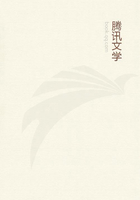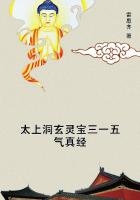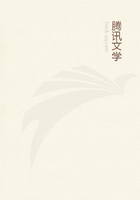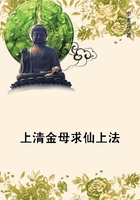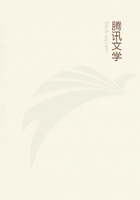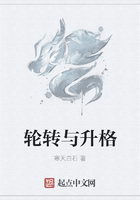Proof.- In so far as we conceive a thing as close at hand, or not long passed away, we conceive that which excludes the presence of the object less, than if its period of future existence were more distant from the present, or if it had long passed away (this is obvious) therefore (by the foregoing Prop.) we are, so far, more intensely affected towards it. Q.E.D.
Corollary.- From the remarks made in IV:Def.vi. of this part it follows that, if objects are separated from the present by a longer period than we can define in conception, though their dates of occurrence be widely separated one from the other, they all affect us equally faintly.
Prop. XI. An emotion towards that which we conceive as necessary is, when other conditions are equal, more intense than an emotion towards that which impossible, or contingent, or non-necessary.
Proof.- In so far as we conceive a thing to be necessary, we, to that extent, affirm its existence; on the other hand we deny a thing's existence, in so far as we conceive it not to be necessary :xxxiii.note.i.); wherefore (IV.ix.) an emotion towards that which is necessary is, other conditions being equal, more intense than an emotion that which is non-necessary. Q.E.D.
Prop. XII. An emotion towards a thing, which we know not to exist at the present time, and which we conceive as possible, is more intense, other conditions being equal, than an emotion towards a thing contingent.
Proof.- In so far as we conceive a thing as contingent, we are affected by the conception of some further thing, which would assert the existence of the former (IV:Def.iii.); but, on the other hand, we (by hypothesis) conceive certain things, which exclude its present existence. But, in so far as we conceive a thing to be possible in the future, we there by conceive things which assert its existence (IV:iv.), that is (III:xviii.), things which promote hope or fear: wherefore an emotion towards something possible is more vehement. Q.E.D.
Corollary.- An emotion towards a thing, which we know not to exist in the present, and which we conceive as contingent, is far fainter, than if we conceive the thing to be present with us.
Proof.- Emotion towards a thing, which we conceive to exist, is more intense than it would be, if we conceived the thing as future V:ix.Coroll.), and is much more vehement, than if the future time be conceived as far distant from the present (IV:x.). Therefore an emotion towards a thing, whose period of existence we conceive to be far distant from the present, is far fainter, than if we conceive the thing as present; it is, nevertheless, more intense, than if we conceived the thing as contingent, wherefore an emotion towards a thing, which we regard as contingent, will be far fainter, than if we conceived the thing to be present with us. Q.E.D.
Prop. XIII. Emotion towards a thing contingent, which we know not to exist in the present, is, other conditions being equal, fainter than an emotion towards a thing past.
Proof.- In so far as we conceive a thing as contingent, we are not affected by the image of any other thing, which asserts the existence of the said thing (IV:Def.iii.), but, on the other hand (by hypothesis), we conceive certain things excluding its present existence. But, in so far as we conceive it in relation to time past, we are assumed to conceive something, which recalls the thing to memory, or excites the image thereof (II:xviii.&Note), which is so far the same as regarding it as present (II:xvii.Coroll.). Therefore (IV:ix.) an emotion towards a thing contingent, which we know does not exist in the present, is fainter, other conditions being equal, than an emotion towards a thing past. Q.E.D.
Prop. XIV. A true knowledge of good and evil cannot check any emotion by virtue of being true, but only in so far as it is considered as an emotion.
Proof.- An emotion is an idea, whereby the mind affirms of its body a greater or less force of existing than before (by the general Definition of the Emotions); therefore it has no positive quality, which can be destroyed by the presence of what is true; consequently the knowledge of good and evil cannot, by virtue oi being true, restrain any emotion.
But, in so far as such knowledge is an emotion (IV:viii.) if it have more strength for restraining emotion, it will to that extent be able to restrain the given emotion. Q.E.D.
Prop. XV. Desire arising from the knowledge of good and bad can be quenched or checked by many of the other desires arising from the emotions whereby we are assailed.
Proof.- From the true knowledge of good and evil, in so far as it is an emotion, necessarily arises desire (Def. of the Emotions, i.), the strength of which is proportioned to the strength of the emotion wherefrom it arises (III:xxxvii.). But, inasmuch as this desire arises (by hypothesis) from the fact of our truly understanding anything, it follows that it is also present with us, in so far as we are active (III:i.), and must therefore be understood through our essence only (III:Def.ii.); consequently (III:vii.) its force and increase can be defined solely by human power.
Again, the desires arising from the emotions whereby we are assailed are stronger, in proportion as the said emotions are more vehement; wherefore their force and increase must be defined solely by the power of external causes, which, when compared with our own power, indefinitely surpass it (IV:iii.); hence the desires arising from like emotions may be more vehement, than the desire which arises from a true knowledge of good and evil, and may, consequently, control or quench it. Q.E.D.
Prop. XVI. Desire arising from the knowledge of good and evil, in so far as such knowledge regards what is future, may be more easily controlled or quenched, than the desire for what is agreeable at the present moment.

